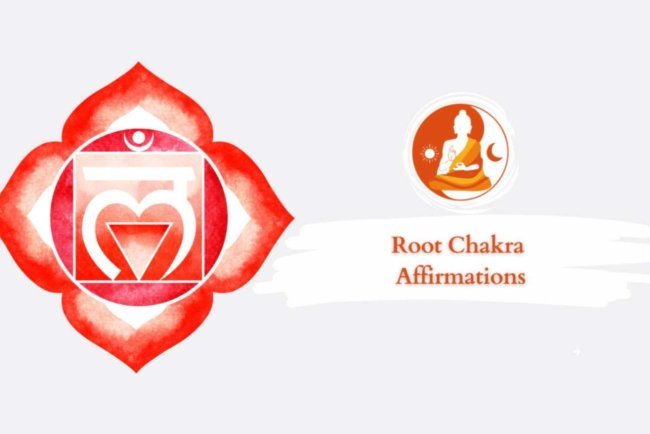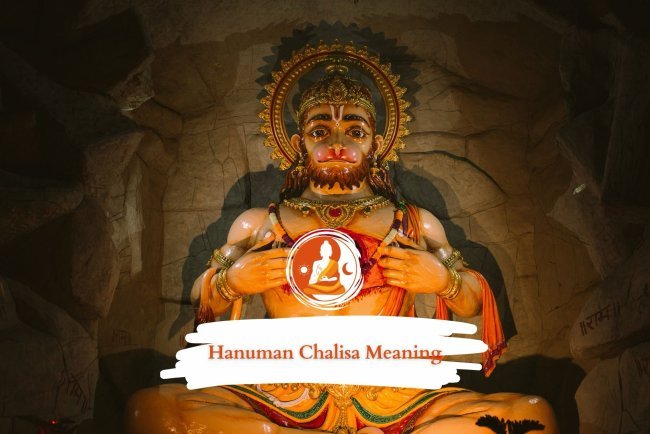Surya Bhedana Pranayama
Learn how to practice Surya Bhedana Pranayama. Discover its energizing benefits, step-by-step technique, and how it stimulates the body and mind.
Know MoreUjjayi Pranayama – The Victorious Breath
Learn how to practice Ujjayi Pranayama, the victorious breath. Calm your mind, boost energy, and enhance focus with this powerful yogic breathing tech...
Know MoreKapalbhati Pranayama: Step-by-Step Guide and Health Ben...
Learn how to practice Kapalbhati Pranayama with this step-by-step guide. Discover its powerful benefits for detox, digestion, and mental clarity.
Know MoreBelly Breathing vs Chest Breathing: A Pranayama Perspec...
Belly breathing vs chest breathing—what's the difference? Understand their impact on stress, posture, and lung capacity with this simple guide.
Know MoreWhat is Pranayama? Different Types of Pranayama
What is pranayama? Discover its meaning, benefits, and explore different types of breathing techniques that enhance energy, focus, and inner calm.
Know MoreHow To Practice Three Part Breath (Dirgha Pranayama)
Practice Three Part Breath to release tension and improve breath control. Learn the benefits and technique of this foundational pranayama practice.
Know MoreHow To Do Shanmukhi Mudra: Steps and Benefits
Learn how to practice Shanmukhi Mudra with step-by-step instructions and discover its powerful benefits for calming the mind, improving focus, and enh...
Know MoreThe Hidden Dangers of Kundalini Yoga: Why is Kundalini ...
Kundalini yoga, a powerful and transforming discipline, has grown in popularity. However, its intensity have alarmed experts.
Know MoreExploring the Different Types of Yoga Certifications
See what types of yoga certifications prospective teachers may get and discover the right yoga teaching programs.
Know MoreHow Long Does it Take to Become a Yoga Instructor?
How long does it take to become a certified yoga instructor? Discover course durations, requirements, and tips for starting your teaching career.
Know MoreHow to Sequence a Yin Yoga Class?
Learn to sequence a Yin Yoga class with this guide. Know essential poses, and benefits of Yin Yoga for a deeply rejuvenating experience.
Know MoreUnveiling the World of Somatic Yoga for Beginners
Explore Somatic Yoga for Beginners: gentle movements to enhance flexibility, and stress, and promote well-being. Start your journey today!
Know MoreWhat is Yogic kriyas: Types, Benefits & Steps
Discover what yogic kriyas are, including their types, benefits, and step-by-step instructions. Learn how these ancient cleansing techniques can enhan...
Know MoreHow to Sequence a Hatha Yoga Class?
Master the art of how to sequence a hatha yoga class for transformative experiences. Learn about warm-ups, standing poses, and backbends
Know MoreWhat is Pushan Mudra: Types, Benefits & Steps
Discover the transformative effects of Pushan Mudra, an ancient hand gesture that promotes digestive health, and enhances overall well-being.
Know MoreButterfly Yoga Pose: A Comprehensive Guide
Discover the secrets of the butterfly yoga pose, its benefits, and proper technique in this comprehensive guide for yogis of all levels.
Know MoreMastering the Bird of Paradise Yoga Pose: A Comprehensi...
Unlock the beauty and difficulty of this complex asana to enhance your yoga practice and bring about physical and mental transformation.
Know MoreExperience the Best Yoga Teacher Training New York City
Discover yoga teacher training New York as you learn from world-class instructors. Explore the benefits of training in New York.
Know MoreHow To Become A Certified Yoga Instructor? (7 Simple St...
Discover how to become a certified yoga instructor in 7 simple steps! Learn about training requirements, certifications, costs, and tips to kick-start...
Know MoreWhat is Rocket Yoga? A Dynamic and Accessible Approach ...
Rocket Yoga is an exciting new style of Ashtanga Yoga that is accessible to students of all experience levels.
Know MoreImprove Your Balance, Strength, and Calmness with These...
Learn how yoga poses on one leg may improve balance, strength, yoga routine and tranquility through focused practice.
Know MoreWhat is the Difference Between RYT and E-RYT? (Explaine...
the difference between RYT and E-RYT in yoga teaching. RYT is a registered yoga teacher, while E-RYT signifies experience and advanced
Know MoreHow Much Does a Yoga Teacher Training Cost?
A yoga teacher training cost varies as per the factors like location, reputation, and so on. Explore options to find affordable training!
Know MoreBest Yoga Teacher Training in the World
Discover the transformative power of best yoga teacher training in the world. Learn about top programs, and how to choose the right one.
Know More7 Yoga Poses to Relieve Gas and Bloating
Discover effective yoga poses to relieve gas and bloating and techniques to alleviate digestive discomfort your overall well-being.
Know MoreTraditional Chandra Namaskar (Moon Salutation): Steps, ...
Traditional Chandra Namaskar Embrace the lunar force through yoga. This ancient Hindu practice offers relaxation, and spiritual connection
Know MoreBest Online Yoga Teacher Training Programs: Top Certifi...
Learn the Best online yoga teacher training programs for aspiring instructors. Learn from experts and get certified from the comfort of home.
Know MoreHow to Activate Chakras in the Human Body?
Learn about how to activate chakras in the human body and use your body energy centers for well being, balance, and spiritual progress.
Know More10 Yoga Poses for Two People: Strengthening Bonds Throu...
Explore beginner-friendly yoga poses for two people with your partner. Discover yoga teacher training in Rishikesh.
Know MoreWhat to Bring to Yoga Class: Your Essential Guide for a...
Feel confident for your next yoga class. This detailed packing list includes all the necessary items for a positive mat experience.
Know MoreYoga Statistics: How Many People Practice Yoga Worldwid...
Yoga statistics reveal its growing popularity and benefits. Learn participation rates, and the positive impact of yoga on health and wellness.
Know MoreDiscover Your Path: Yoga Teacher Training in Thailand
Explore the aspects of yoga teacher training in Thailand. Observe the stunning natural beauty and deepen your connection to yoga.
Know MoreBikram Yoga Teacher Training Worldwide
Learn everything you need to know this will help you decide if bikram yoga teacher training is right for you.
Know MoreIs Kassandra a Certified Yoga Teacher? Qualifications E...
Is Kassandra a certified yoga teacher? . Whether you're a beginner or a seasoned yogi, her classes can change your life.
Know MoreYoga Alliance Certification: How to Go About Your Journ...
Learn about the ins and outs of yoga alliance certification, its importance, and how to obtain it. You will also learn about online options
Know MoreBest Restorative Yoga Teacher Training Programs
Discover the best restorative yoga teacher training programs, both online and in-person. Learn about certification, curriculum, and many more!
Know MoreTrauma Yoga Certification: Recovery through Yoga
Heal your Mind, Body, and Soul. Learn to use yoga for therapeutic benefits through yoga therapy certification. Get certified now!
Know MoreDifference Between Ashtanga Vinyasa Yoga and Vinyasa Yo...
Explore the difference between Ashtanga Vinyasa Yoga and Vinyasa Yoga, understanding their unique practices & benefits in this indepth guide.
Know MoreRoot Chakra Affirmations to Enhance Stability and Confi...
Root chakra affirmations promote grounding, stability, and security. Discover powerful affirmations for root chakra activation, and more.
Know MoreWhat is a Moon Salutation in Yoga?
Learn what a moon salutation in yoga is, its benefits, how to perform it, and how it complements your practice for balance and relaxation.
Know MoreDifference Between 200 Hour, 300 Hour and 500 Hour YTTC...
Explore the differences between 200 hour, 300 hour, and 500 hour YTTC to choose the right program for your yoga journey.
Know MoreBest Yoga Teacher Training in Bali
Discover the best yoga teacher training in Bali! Explore yoga courses, and transformative experiences in Bali’s serene environment.
Know MoreWhat is the Meaning of Hanuman Chalisa? Explore Its Sig...
Discover the Hanuman Chalisa meaning, and powerful benefits. Explore translations, and why it inspires millions worldwide.
Know MoreWhat Does a White Aura Mean? Meaning, Symbolism, and Sp...
Discover what a white aura means, its spiritual significance, and how it compares to other aura colors like green, black, and red.
Know MoreSanskrit Names for Yoga Poses: Unearthing the Roots of ...
Discover Sanskrit names for yoga poses and their meaning, looking into the deep history of yogic asanas and their roots in the language of Sanskrit.
Know MoreSurya Bhedana Pranayama: An In-Depth Guide to Harnessin...
Explore Surya Bhedana Pranayama, a transformative yogic breathing technique to activate surya nadi, and unlock vitality and health.
Know MoreYoga Instructor Certification India: How to Turn Your P...
Find out about yoga instructor certification India programs, the process of becoming a certified yoga teacher and top YTTC in India.
Know MoreThe 12 Poses of Surya Namaskar: A Detailed Overview
Discover the 12 poses of Surya Namaskar, their benefits, steps, and significance for flexibility, strength, and mental well-being.
Know MoreDiscover the Best Online Yoga Classes for Your Practice
Discover the best online yoga classes and programs for all levels. Explore free and paid options, of these classes, tailored to your goals.
Know MoreExplore Kemetic Yoga Poses: Enhance Your Practice and M...
Discover Kemetic yoga poses that blend ancient Egyptian practices with breathing techniques to nurture you physically, and spiritually.
Know MoreSurya Namaskar Asana Names: A Comprehensive Guide
Discover the surya namaskar asana names, types, and benefits. Learn the 12 steps with pictures, names for a deeper yoga experience.
Know MoreBhadrasana Yoga: A Complete Guide to the Pose of Grace
Find out the empowering practice of Bhadrasana Yoga. Learn how to do it, its benefits, contraindications, and find related poses
Know MoreVajrasana Yoga: The Diamond Pose for Wellness
Learn about the health benefits, procedure, and contraindications of vajrasana yoga and how to perform vajrasana and enhance digestive health
Know MoreWhat is the Message of the Bhagavad Gita?
Find out what is the message of the bhagavad gita and its duties on selflessness and spiritual growth, which is crucial for a student.
Know MoreWhat is Pancha Klesha: The Five Afflictions of the Mind
Explore Pancha Klesha, the five afflictions of the mind, rooted in Patanjali's Yoga Sutras. significance in yoga and spiritual growth
Know MoreHow to Do Parvatasana?
Learn how to do Parvatasana, its steps, benefits, and variations. Discover the transformative power of this yoga pose.
Know MoreMastering the Superman Yoga Pose for Strength and Stabi...
Discover the benefits of the superman yoga pose, a powerful exercise that improves strength, posture, and flexibility.
Know MoreBest Asana for Meditation: Poses to Achieve Mental Clar...
Discover the best asana for meditation and explore five meditative postures to deepen your practice. Learn meditation asana names, benefits
Know MoreMindful Yoga Poses for Couples: Bonding and Flexibility...
Strengthen your bond with these amazing yoga poses for couples. Discover partner yoga asanas, couple yoga stretches, and yoga poses for two.
Know MoreExplore Four Person Yoga Poses: Improve Balance & Flexi...
Discover exciting four person yoga poses to enhance flexibility, and teamwork. Try to-perform partner yoga for four for beginners today!
Know MoreHow to Become a Traveling Yoga Instructor?
how to become a traveling yoga instructor and teach yoga while exploring the world. Discover training, pay, and lifestyle tips for travel
Know MoreHow Many Types of Kriyas in Yoga?
Uncover the secrets of yogic kriyas and learn about the how many types of kriyas in yoga are there? Discover the number of kriyas
Know MoreHow Much Does a 200 Hour Yoga Teacher Training Cost?
Wondering how much does a 200 Hour Yoga teacher training cost? Explore yoga teacher training prices, costs, and the best affordable options.
Know MoreDoes Yoga Burn Calories? What You Need to Know
Wondering, does yoga burn calories? Learn how different yoga styles impact calorie burn, including hot yoga, power yoga, and vinyasa flow
Know MoreAverage Salary of a Yoga Teacher: A Global Perspective
Discover the average salary of a yoga teacher worldwide, including earnings from online instruction, retreats, and teaching jobs at resorts.
Know MoreHatha Yoga Vs Vinyasa Yoga: Which One is Right for You?
Discover the difference between Hatha Yoga vs Vinyasa Yoga. Learn their benefits, poses, and styles to find the best practice for your needs.
Know More















































































